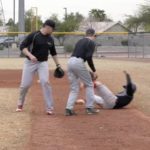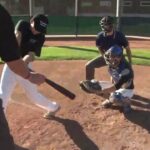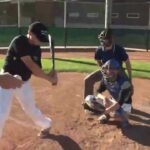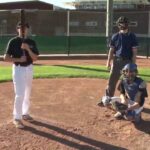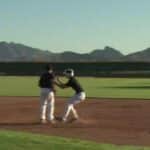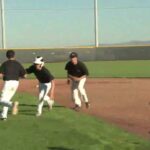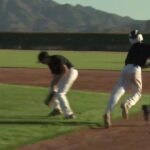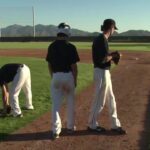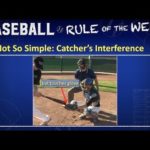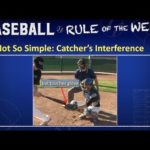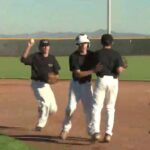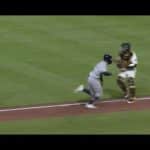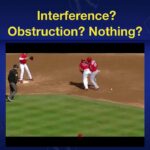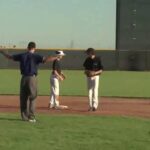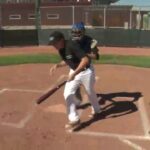7.06 Obstruction
When the obstruction occurs, the umpire shall call or signal “Obstruction.”
(a) If a play is being made on the obstructed runner, or if the batter-runner is obstructed before touching first base, the ball is dead and all runners shall advance without liability to be put out, to the bases they would have reached, in the umpire’s judgment, if there had been no obstruction. The obstructed runner shall be awarded at least one base beyond the base last legally touched by such runner, before the obstruction. Any preceding runners forced to advance by the award of bases as the penalty for obstruction shall advance without liability to be put out;
(b) If no play is being made on the obstructed runner, the play shall proceed until no further action is possible. The umpire shall then call “Time” and impose such penalties, if any, as in that umpire’s judgment will nullify the act of obstruction. NOTE 1: When the ball is not dead on obstruction and an obstructed runner advances beyond the base which, in the umpire’s judgment, the runner would have been awarded because of being obstructed, the runner does so at his/ her own risk and may be tagged out. This is a judgment call. NOTE 2: If the defensive player blocks the base (plate) or base line clearly without possession of the ball, obstruction shall be called. The runner is safe and a delayed dead ball shall be called.

